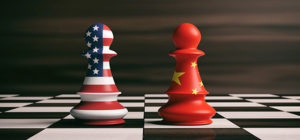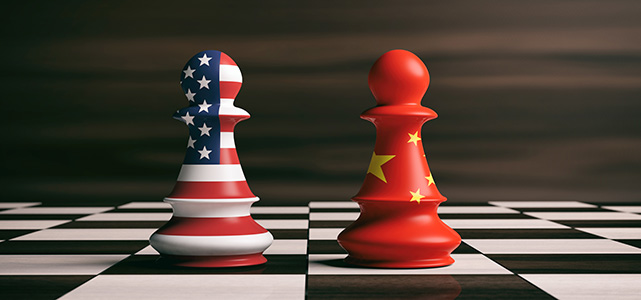 With the U.S.-China trade war looking increasingly ominous, two questions are on the minds of many: do trade deficits matter and which side has more to lose? Economists of almost all stripes agree that trade is good, that trade deficits don’t really matter, that the nation that imposes tariffs hurts itself, and that if it faces retaliation, the harm is made worse.
With the U.S.-China trade war looking increasingly ominous, two questions are on the minds of many: do trade deficits matter and which side has more to lose? Economists of almost all stripes agree that trade is good, that trade deficits don’t really matter, that the nation that imposes tariffs hurts itself, and that if it faces retaliation, the harm is made worse.
So why is Trump threatening steep tariffs on Chinese imports? That relates to the second question: China has much more to lose economically in an all-out trade war than the U.S. But that is not the end of the story.
Chinese exports to the U.S. totaled $500 billion in 2017, 4% of its GDP. Our exports to China were just $130 billion, or 0.7% of our GDP. Moreover, U.S. exports to China are not so easily replaced. China can easily stop buying planes from Boeing and instead buy them from Airbus, but then China has no leverage. And while China can stop buying soybeans or oil from the U.S., those markets are global, and the impacts would be minimal.
Advertisement
China could conceivably sell the U.S. Treasuries they hold, but, at a minimum, that would push up China’s currency, which would, in turn, hurt exports, and might plunge the U.S. into a recession, further slowing exports.
Finally, if China retaliates against U.S. firms, global manufacturers might no longer consider China as a safe place from which to sell to the U.S. The resulting loss of foreign investment would hurt Chinese productivity growth and acquisition of foreign technology and industrial know-how.
If economically everything looks to be in favor of the U.S., what’s the problem? Politics. And there, things are very different.
If the economic leverage is with the U.S., the political leverage rests fully with China. Chinese leaders do not have to worry about elections, constituents, critical editorials, or Sunday morning talk shows. On the contrary, when China was angry at South Korea for placing a U.S.-owned anti-missile defense system on their territory, China simply shut down a whole chain of South Korean department stores and Chinese tourists stopped showing up in Seoul. And when China was mad at Japan, rioters attacked Japanese-owned factories and Chinese purchases of Toyotas and Nissans shriveled to nothing in remarkably short order.
Now, the U.S. is not Japan or South Korea, so things are much more complicated, but the Chinese are strategically ready. They are responding to our tariffs by, among other things, deliberately slapping import taxes on products made in states represented by key congressional Republicans, such as whiskey from Mitch McConnell’s home state of Kentucky, and Harley Davidson motorcycles, since they come from Wisconsin, the home state of House Speaker Paul Ryan.
China’s strategy is to get enough constituents, farmers, and business leaders mad at enough members of Congress in general—and Republicans in particular—to pressure Trump to back down.
Domestically, there is simply no way China can be seen as folding under U.S. pressure. On the contrary, President Xi faces pressure to project China as a world power. And true to form, the Chinese are quickly seeing and raising the tariff ante. As such, China is saying they will not back down, are prepared to suffer any financial costs, and are prepared to play a long game.
For Trump to win under these conditions, he will have to be prepared to tolerate a great deal of political pain if his demands are not met, and convince the Chinese that his pain tolerance and endurance is greater than that of Beijing.
My bet is that the Chinese either play to Trump’s ego and give him a series of symbolic but largely hollow victories, or that China makes concessions they have offered in the past, but (importantly) offer no timetable for implementation and skirt the core U.S. complaints. That way Trump can claim he has won, but the status quo will essentially be maintained. And, in that case, the Chinese will have emerged victorious. Let the games begin.

